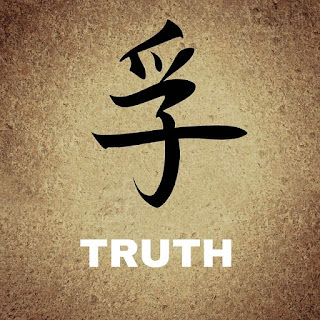For many Christians, it appears that "truth" ultimately boils down to whatever they believe. Reality is irrelevant because they are confident in their beliefs. They have faith. They are confident that what is written in their bible is true because they believe it is the word of some sort of god. They do not have evidence, but they have persuaded themselves that the need no evidence because they have faith. For these Christians, their beliefs are true because they have faith that their beliefs are true. After all, their beliefs seem true.
The problem is that there is only one truth, and it is the one that reflects reality. Either there was a historical Jesus or there was not. Sure, there could have been a historical Jesus that bore little resemblance to the Jesus character described in the bible some Christians consider holy, but that would still be a historical Jesus of some sort. And if there was a historical Jesus, he either returned from the dead or he did not.
Does Donald Trump know more about ISIS than all the generals? There is only one correct answer, and it is the one which reflects reality. That is, truth is a measure of how well something corresponds with objective reality. We can ask how many people attended Trump's inauguration, and there is only one correct answer. The correct answer would be the number of people who were there that day. Unlike most of the questions about Jesus, questions like this are far easier to test. The relevant point here is that we test them against reality.
There is no question that there can be multiple interpretations of facts or verifiable events. But facts are still facts. If something happened and we know it happened, I can't put some clever interpretation on it to make it so it did not happen. Similarly, we do not gain much by obsessing over subjective or experiential truths (e.g., "lived experience" or "my truth"). If I ate cereal for breakfast yesterday but strongly believe that I ate eggs instead, I am wrong. The truth is that I ate cereal, and no amount of belief that I ate eggs can change that. To claim "my truth" that I ate eggs is more valid than what actually happened is absurd. It may be relevant if I do really believe it, but it does not deserve to be called truth.
John never believed in ghosts until he encountered one during a stay a creepy old hotel. The visceral experience he had during this encounter convinced him of the existence of a spirit world. "I know ghosts are real because I experienced one for myself." This is the old truth-through-revelation claim that is central to religion. But John's experience does not determine what it true because reality is independent of John and the manner in which he interprets his experience. Maybe John is mentally ill. Maybe John was feverish, under tremendous stress, or simply mistaken. Can his experience be confirmed, verified, replicated, etc.? If not, it cannot be considered anything more than his interpretation of an event.
Sarah believes that the "holy" bible is the literal word of a particular god in which she was taught to believe from an early age and that it should be read from this perspective. She believes that the world is approximately 6,000 years old and points to her bible as the basis of this belief. Moreover, she does not consider this to be a belief at all but the truth. Volumes of scientific evidence have accumulated that paint a very different picture of the age of the Earth. In fact, the scientific community has reached consensus about this. "They are wrong," Sarah insists. She knows "the truth" and is not going to yield to contradictory evidence. Again, what Sarah calls truth is based on her belief system and has no correspondence to reality. The fact that she can find others who share her belief has no bearing on its veracity. Worse, her continued insistence that her belief is correct in the face of overwhelming evidence to the contrary is delusional.
Many atheists aspire to be more rational. If asked, most of us would probably say that we'd prefer to believe more things that were true and fewer things that were false. And most of us seem to recognize that "true" and "false" really mean true or false with reference to external, objective reality. The countless Internet memes about how science reflects the truth regardless of whether people believe in it are good reminders of this. Something that is true (i.e., that reflects reality) is true no matter how few or how many people believe it. Something that is false (i.e., that does not reflect reality) is false no matter how many or how few people believe it.
Politically liberal atheists have long bashed politically conservative Christians for insisting that their preferred interpretations of their bible are true. We've typically done so by asking for evidence, which suggests that we are assessing truth based on the degree to which claims reflect external reality. But lately, it has become increasingly common to hear references to "lived experience" and "my truth" among politically liberal atheists. Those using such phrases should be prepared for the same sort of criticism we have been directing at the conservative Christians. Our impressions of our experience may be important, but they do not deserve to be called "truth" unless they reflect reality.
A early version of this post appeared on Atheist Revolution in 2005. It was revised and expanded in 2019.
